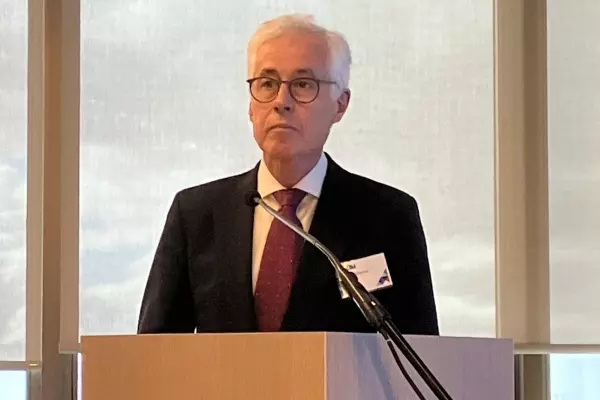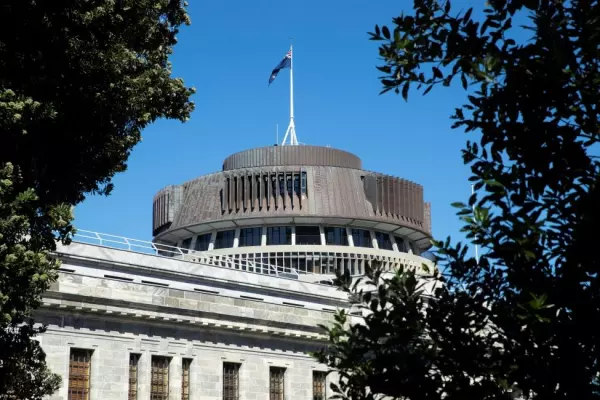The Public Service Commission is declining to release performance documentation related to the individual public service chief executives that it employs.
Public service leaders earn hundreds of thousands of dollars a year and oversee departments with significant influence over the lives of New Zealanders.
BusinessDesk asked for the letters of expectation sent to 15 public service department chief executives, as well as reviews of their performance.
The commission refused to release the documents on privacy grounds set out in the Official Information Act (OIA), but did provide contextual information in documents and an interview with commissioner Peter Hughes.
BusinessDesk has complained to the Ombudsman, arguing that while some information will be private and confidential to those executives, there is public interest in knowing what the public service commissioner as the employer expects from individual chief executives.
That information, together with other accountability measures – like departmental statements of intent, budget commitments, annual reports and select committee appearances – would help inform the public's assessments both of agencies' performance and the extent to which CEs' accountabilities are consistent across government.
As commissioner, Hughes has responsibility under the Public Service Act to appoint and review the performance of public service chief executives.
"I do not conduct performance reviews in public or via the media," he said. Releasing specific details would likely "turn into a whole lot of invasive and unfair scrutiny of those individuals," he told BusinessDesk.
In its OIA response, the commission said all public service chief executives are subject to a performance framework that sets expectations across four areas:
- results and services to deliver government priorities.
- system and agency performance.
- personal commitment to the public sector's spirit of service.
- personal commitment to managing the context they operate in.
The response also noted that the commissioner has no power to direct chief executives in their statutory responsibilities or agency work. For their part, chief executives are mainly accountable to ministers and have limited responsibilities to Hughes.
The commission says it works with chief executives to deliver performance excellence by setting clear, measurable expectations; providing ongoing support through a collaborative approach to issues management and through leadership and talent development; and providing real-time feedback.
A document on performance released by the commission said chief executives are responsible for being able to demonstrate their own performance, which is supplemented by material gathered by the commission throughout the year.
“The performance summary is in narrative form. It highlights specific achievements and areas for improvement, relating to the agreed performance expectations.”
Chief executives are held accountable for their performance in three main ways, according to the commission: by parliament, by the commission itself within the employment relationship, and by public scrutiny, including by the media.
Balance "is about right"
Chris Eichbaum, an adjunct professor at the school of government at Victoria University of Wellington, thinks it is reasonable for the commission not to release individual performance expectations or reviews in the same way other employers don’t disclose private information.
“I can understand, given the importance of the position of a chief executive why people, from time to time, might feel that there is insufficient transparency attached to assessment and review,” he said.
“But I think the balance we’ve got is about right.”
There are other avenues like select committee appearances to hold executives accountable, Eichbaum said, and the fact that any allegation of non-performance would be widely known and discussed in the capital.
“Wellington is essentially a fishing village where it’s hard to hide.”
Victoria University of Wellington adjunct professor Ian Ball, a former senior Treasury staffer with international experience in public sector accountability, said the public and parliament need clear information on what public service departments plan to do each year, what they deliver, how that contributes to outcomes, and how much they spend.
 Ian Ball: CEs need to be accountable, but the form of reporting is not so important. (Image: VUW)
Ian Ball: CEs need to be accountable, but the form of reporting is not so important. (Image: VUW)While much of this information is contained in annual reports and raked over in select committee appearances, Ball suggested the way it is being reported currently isn’t sufficiently transparent or robust.
As for chief executive performance, he is less concerned about where it is being reported, as long as what is publicly available allows for sufficient scrutiny.
“In my mind chief executives need to be transparently and publicly accountable for the agency delivering its services and they should also, I think, have some accountability for making sure those services are contributing to outcomes, or results.”
Scrutiny and support at the top
Each year, the commission agrees on personal development plans with public service chief executives. According to the overview released under the OIA, the commission provides a range of supports, including physical health assessments, psychological support, career coaching, governance development and ongoing support and check-ins.
“Providing positive feedback is a core part of the commission’s employment relationship with CEs. We do this through phone calls, formal letters, text messages and regular meetings,” the document said.
Scrutiny of the public service departments led by chief executives extends beyond individual performance expectations and reviews.
The Public Service Commission (when it was known as the State Services Commission), Treasury and the Department of Prime Minister and Cabinet (DPMC) developed the performance improvement framework (PIF) to help public service leaders lead improvement in their agencies and across the wider system.
Reviews under the PIF framework, which focus on agency capability and future requirements, are done by independent reviewers. With their forward focus they are not, strictly speaking, accountability documents.
Two of these have been published in the last two years, both in 2020, on the Serious Fraud Office and Te Puni Kōkiri. Hughes told BusinessDesk that more PIFs will be undertaken when the timing is right for the relevant agency. PIFs had “got crowded out a little bit by covid and other things, but we still do them,” he said.
Under the Public Service Act, the commissioner also has the power to “review the design and operation of the system of government agencies” to provide advice to the public service minister.
The OIA response said the commissioner hadn’t carried out any formal reviews since the act came into force in Aug 2020 last year. Instead, she said the commission plays an ongoing role advising the government on machinery of government matters.
“Such matters can arise where there is a desire for government to organise more effectively around an issue, to focus leadership on an issue, or to clarify roles and responsibilities.”
Since the new act came into force in August 2020, the commission has advised on the establishment of a number of new entities and boards, including interdepartmental executive boards on strategic planning reform and the border, in relation to covid-19, the new Ministry for Disabled People and the interim Health New Zealand and Māori Health Authority bodies.
Additional reporting by Nikitin Sallee
Do you know something we should know? Email BusinessDesk's public sector investigation team: [email protected].















